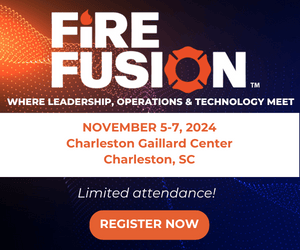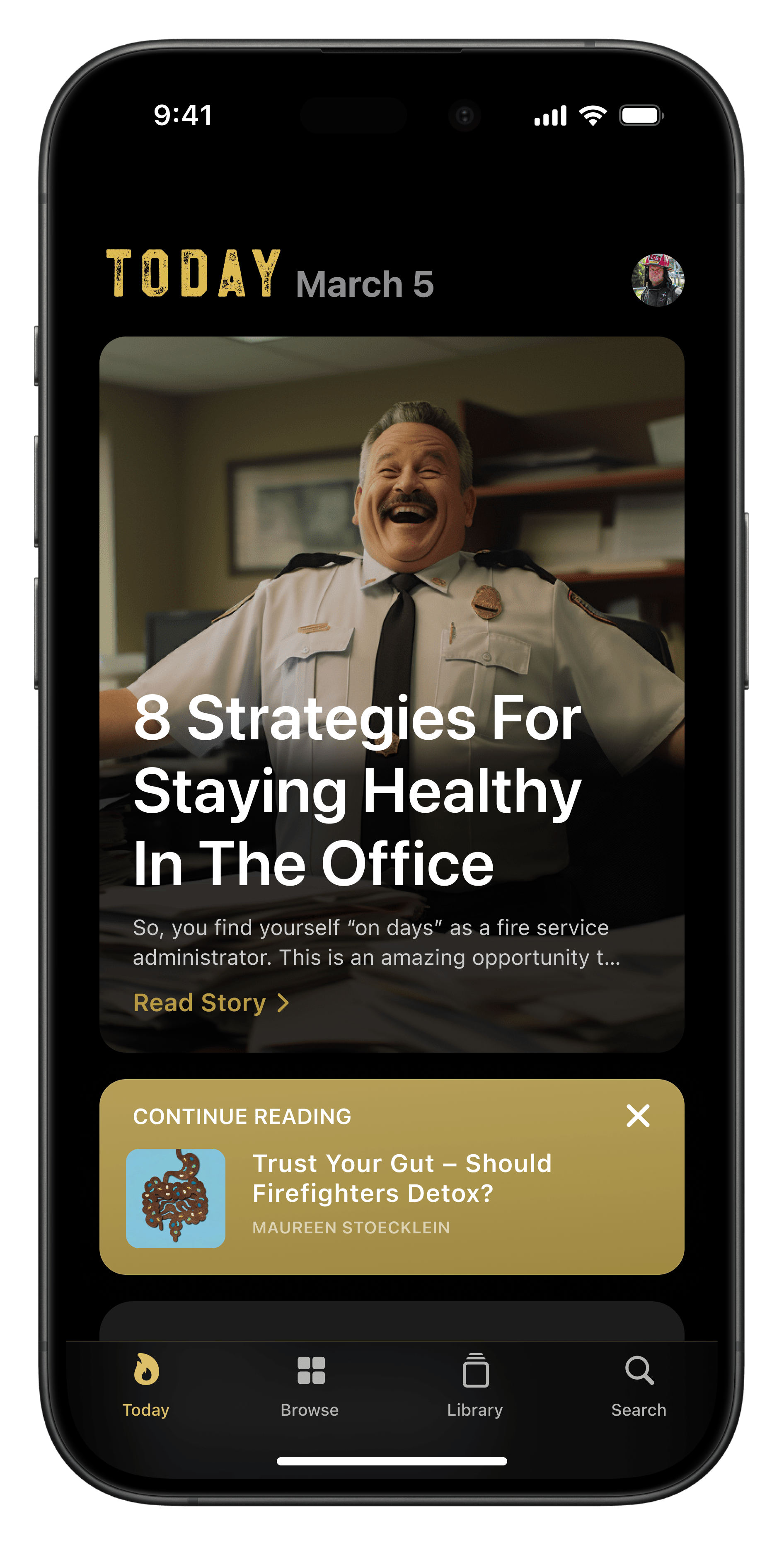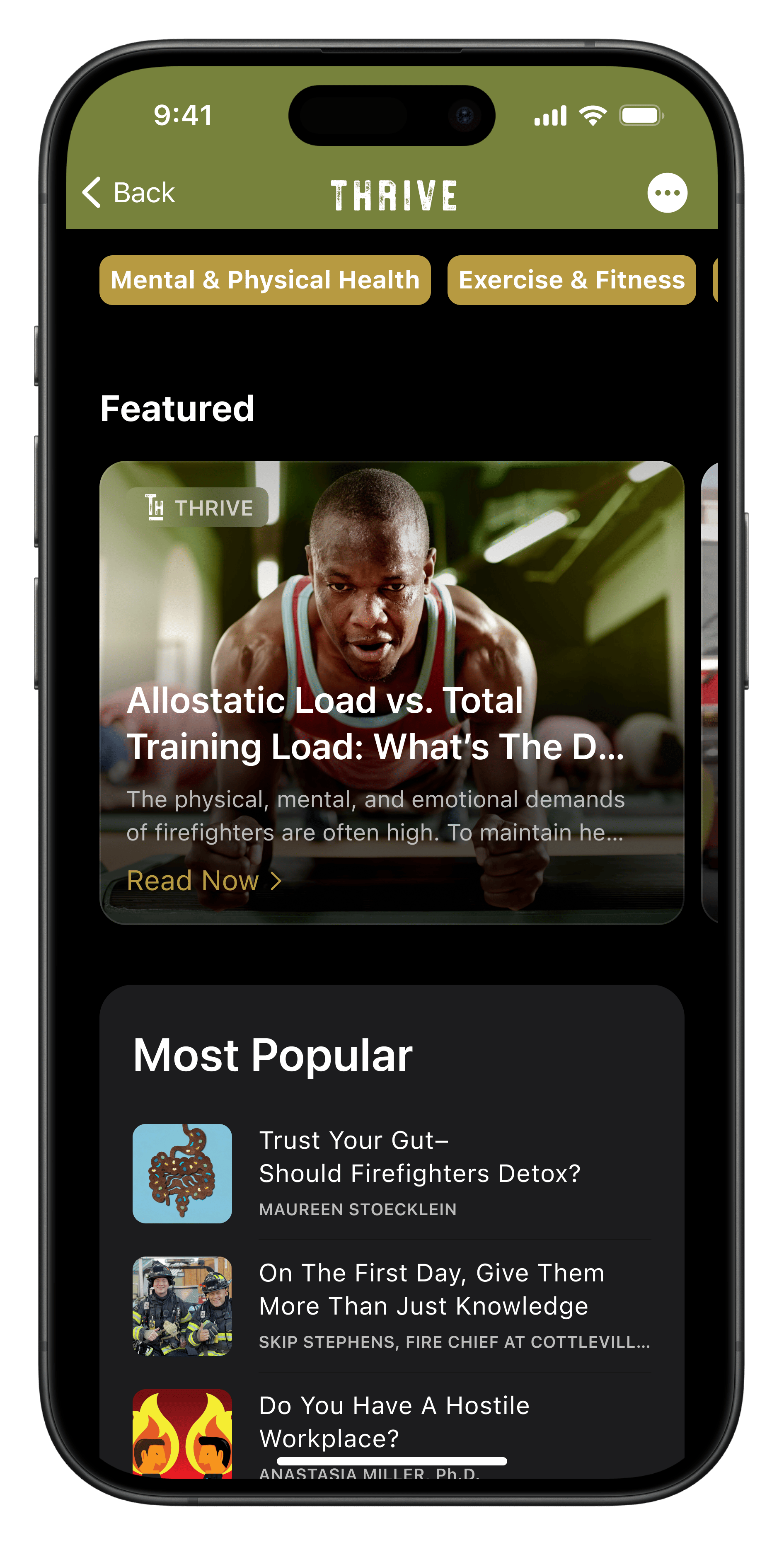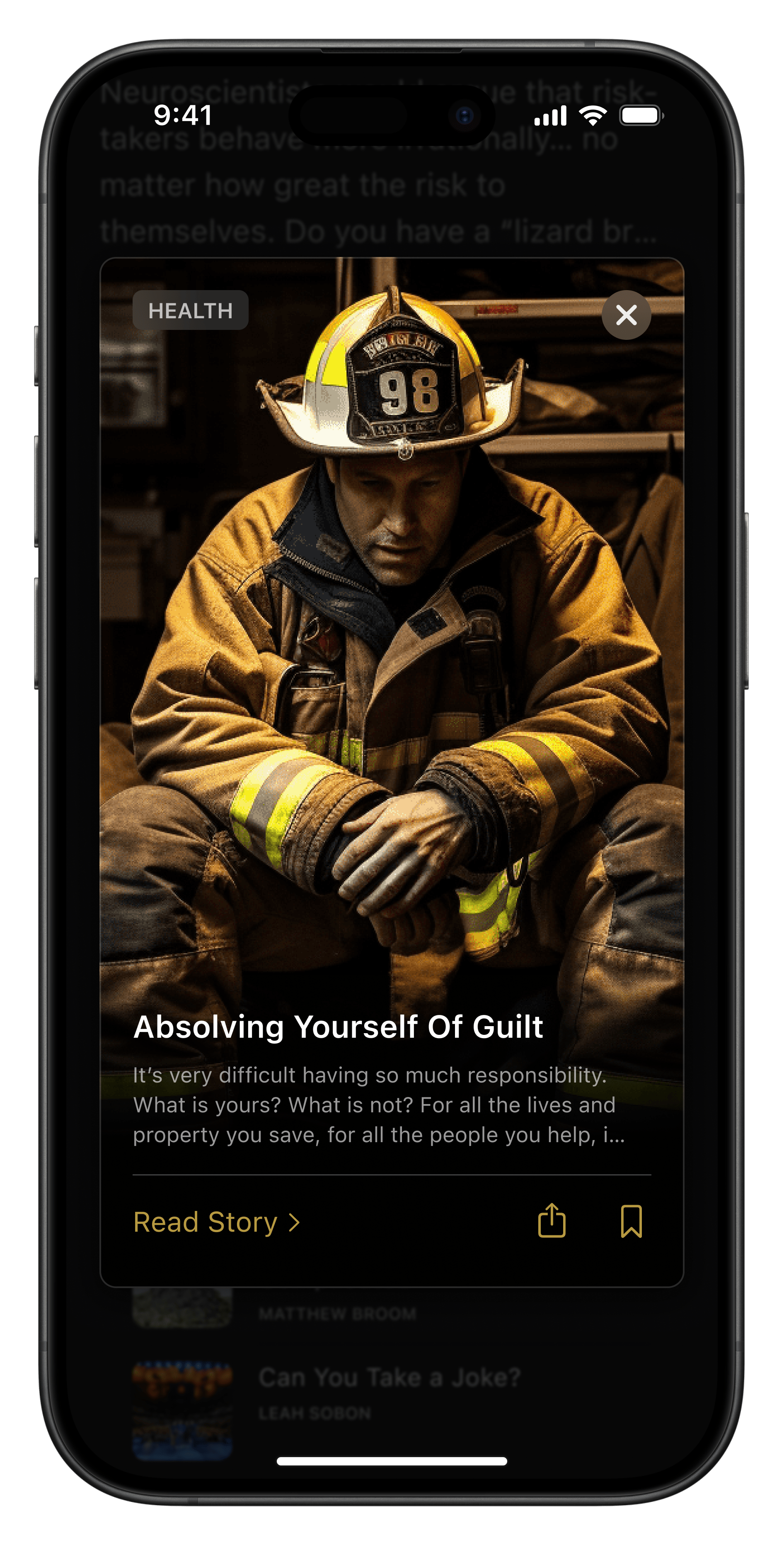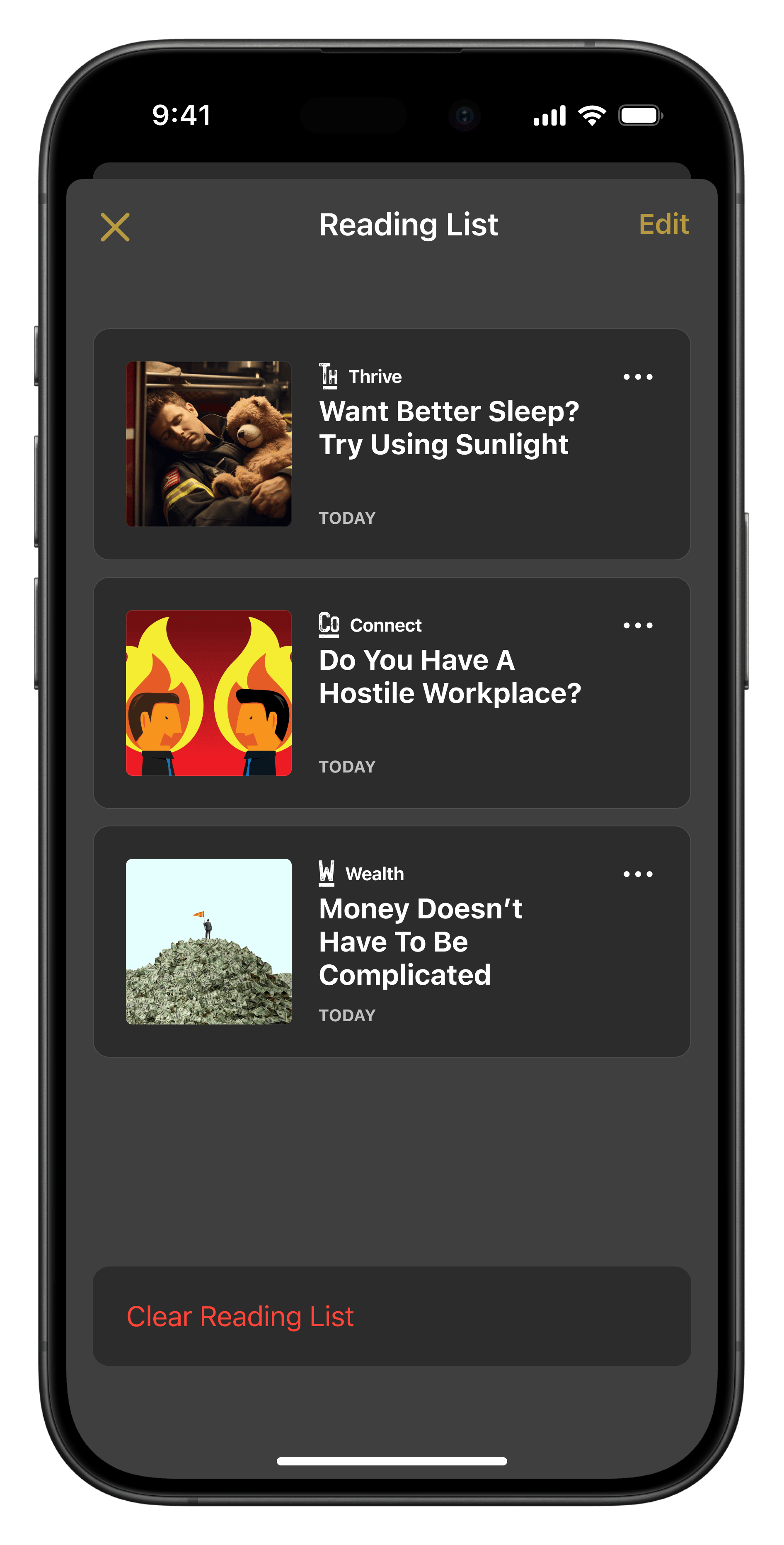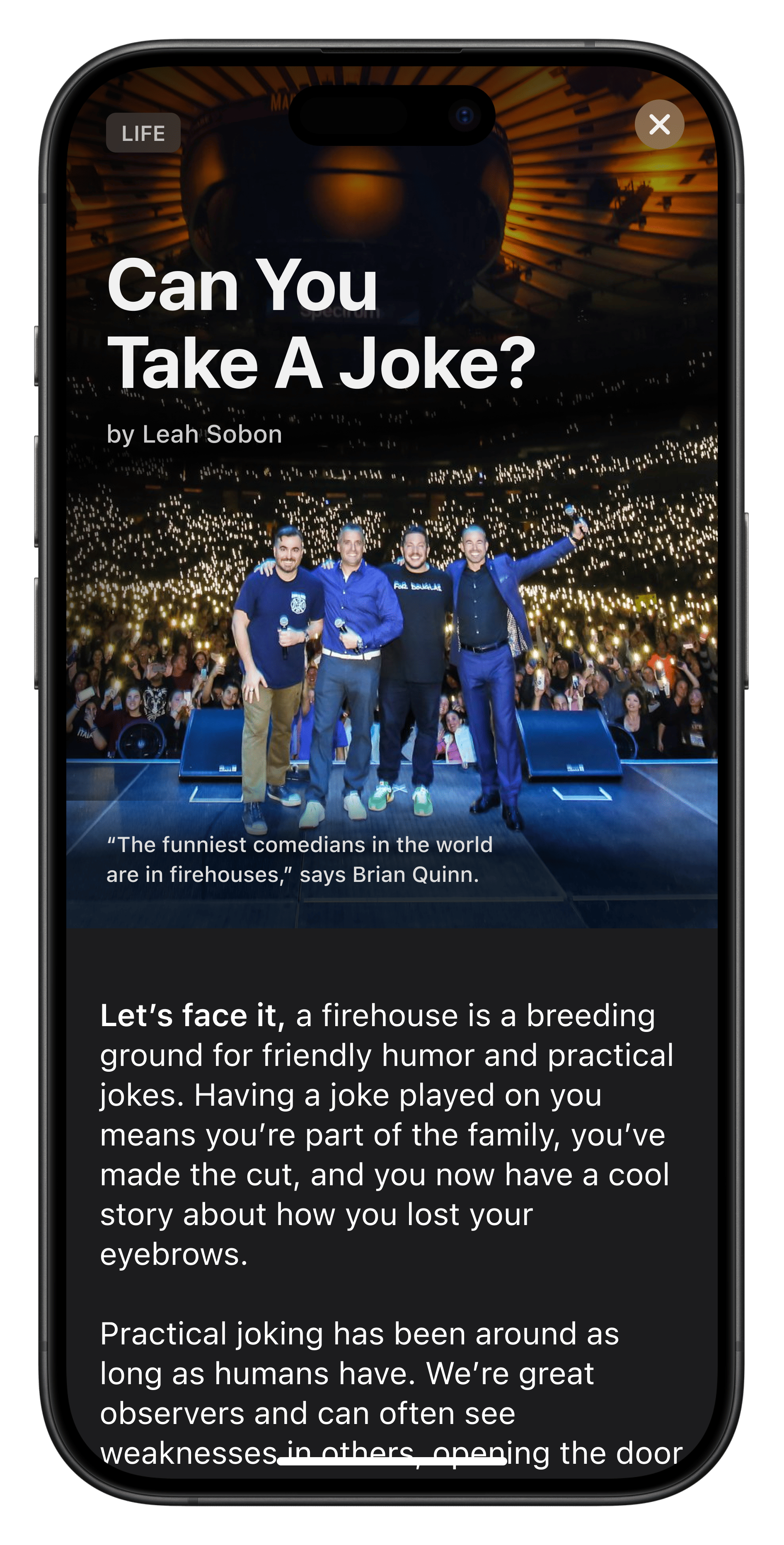The Meditating Firefighter

By Keith Hanks
Meditation is one of the oldest and most underappreciated ways of relaxing your mind. Thousands of years old and trusted by some of the world’s most pronounced cultures, it still remains somewhat of a mystery to us “Westerners.” This is especially true in the firefighter community.
With mental health awareness at an all-time high, more and more are asking for ways of achieving their own post-traumatic growth. Resources and modalities used by society for decades are slowly trickling into firehouses across North America and even the globe.
Steve Holmes is an amazingly unique human being. Joining the United States Marine Corps right out of high school at 18 years old, he was sent to war. After three tours of combat, eventually holding the rank of Sergeant, Steve returned home a much different and, at times, angry individual.
He would immediately find his way to the fire service, becoming a career firefighter in New Hampshire. After some time, he obtained his paramedic certification and began running calls on the ambulance. More and more was added to his already impressive trauma resume as the bad calls piled up. In time, Steve would reach his breaking point. The modality he stumbled across set him on a mental and spiritual wholeness journey.
Joining me in a virtual meeting for this interview, Steve is sitting outside with the sun shining through one of Mother Nature’s most beautiful backdrops of a field and flowering trees. Sitting in his usual relaxed posture, a warm, genuine, and inviting smile welcomes me as we begin our conversation. His longer hair hangs freely behind each ear, along with his red, sleeveless t-shirt, giving the impression of an easy-going, carefree man. After our usual exchange of “Hi, how are you?”, we wasted no time getting right to the meat and potatoes of the discussion.

How did you come across meditation?
In 2019, I was at a low point in my life. I had to remove myself from the profession for a break. I was just so angry. I ended up taking a leave of absence. While on this leave, I read a book, Breaking the Habit of Being Yourself, by Dr. Joe Dispenza. I knew nothing about meditation beforehand, and honestly, I didn’t believe in it.
What got you to start using it?
I felt like this was something that could help me. In the book, the doctor goes over the science of meditation. It gave me the hope that I had the power to help myself.
I’m guessing meditating didn’t happen overnight. So, what happened next?
Again, I knew nothing before reading that book. In the back, he spells out some guided meditations. I just kept practicing. Like most people, I definitely failed at meditating at first. I couldn’t shut my mind off, couldn’t relax, and couldn’t get present. However, I was adamant. I kept trying. One day, I was just done with the world and ready to quit. So, I gave it one last try. At that moment, I felt inner frustration telling me to take control, but I gave up fighting and surrendered. I found peace and bliss. I had tears in my eyes. After that, I was hooked.
Let’s talk about how and what to focus on. I feel this is where most people stumble.
Yes. Most overthink this part. I focus on my breath and just being in the moment. The point is not trying and just letting go. You’re trying to increase your awareness of ALL your reality, which includes your thoughts, feelings, pains, and doubts. At the end of the day, I focus on EVERYTHING. If a thought arises, let it. Just notice it. Sitting and following your thoughts is much more interesting than trying to control them or sitting in front of a TV. Your thoughts are very useful.
What other modalities and treatments have you used and/or still use alongside meditation?
Before meditation, I did several years of traditional therapy and even some pharmaceuticals. I’ve tried natural medicines and group therapies. I refer to this time as the Dark Ages, when I was in complete denial of my symptoms of PTSD. Post meditation, I use breathwork, yoga, and float tanks, and I’ve tried Ayahuasca in a legal, controlled setting. I used medical marijuana before and after getting into meditating. It’s a great symptom reducer but doesn’t cure anything long-term.
Does there need to be a special place or equipment to meditate?
Well, I’m at a point where I can meditate anywhere. (A giant, proud smile comes over his face.) However, starting out, I feel that setting aside a special place is beneficial. A quiet place. There’s a lot of personal preference for meditation, but if you’re trying to do it with your kids playing in the other room, it’s going to be a lot harder. This is a practice of focus, attention, patience, and stillness. If you’re not setting yourself up for success, then it will be that much harder.
So you have a place and time to meditate. What about positioning and posture?
I always try to push sitting meditation. But a lot of people have knee and back problems. I had knee problems before I started, but they have gotten a lot better! I always tell people if it’s painful, move positions. If it’s just uncomfortable, learn to deal with it. It’s all part of learning how to meditate. Notice it. You need to be comfortable. You can move. There’s nothing wrong with movement. Try to have your hips above your knees, as you’ll be able to sit longer. Have a straight spine and an exaggerated posture, with your chest out and chin up. The only muscles activated are those to maintain your posture and to breathe. Other than that, you should be completely relaxed.
How could first responders benefit from meditation, and what can be gained from doing it?
First responders go through an incredible amount of stress. They see awful things, broken families, abuse, death, and broken systems. It’s just an endless supply of sadness, anger, and frustration. You don’t feel appreciated or that you’re making a big enough difference after a while. It adds up. You are constantly thinking, thinking, thinking, and you can’t just turn that off! Meditation is the oldest and most trusted way of dealing with that. This is what the samurai would do after they came back from battle. This is a tool that is accessible to every human on the planet, and it’s free to do. This is mental health 101 from the get-go. This is processing life. Retraining your focus and calming down. Stepping back and seeing the bigger picture. This job will consume you if you don’t have something that allows you to do that. I feel the suicide statistics speak for themselves with regard to that.
What does meditation mean to you?
To me, it’s a method of raising my awareness of life. It’s a way of learning and growing emotionally, intellectually, and spiritually. It’s like your body does most of its healing physically when you’re sleeping. I feel emotionally, intellectually, and spiritually that your body is doing that during meditation. When you give up control, stop trying to control life, and start to just notice it. You can drop your shield and just exist. I think, at some point, the job affects everyone. You may not notice it. It may be early in the career or after retirement. At some point, it all catches up with you! Once you start to think you’re broken, once the genesis of that thought process begins, it’s very difficult to unthink that.
Any breakthroughs with your own mental health since starting meditation?
It has helped me to see that anyone who has been through what I have would feel and think the same way. Therefore, I do have PTSD, but I am not broken. Meditation has allowed me to step aside from all those negative thoughts and behaviors and just notice and understand them better.
If you could give advice to a first responder starting out with meditation, what would it be?
First, a couple of things that come to mind are that this is a practice, and it takes time, like anything else. It takes patience. Most importantly, patience with yourself. A lot of people want to control their thoughts. To turn them off. The reason why people can’t do that is because you CAN’T turn them off! It is not possible. Eventually, you realize that thoughts happen just like your heartbeats. Your task in meditation isn’t to turn off the thoughts or control them. It’s just to notice them. You’re creating a higher level of consciousness. You’re creating a witness and are just there to notice your thoughts.
Meditation is one of the many tools available for first responders to let go of the chaos we often keep locked up inside our heads. The other nice thing is it takes no fancy equipment, membership fees, or traveling to do it. Best of all, it’s free!
Recommended Reading:
Breaking the Habit of Being Yourself by Dr. Joe Dispenza
The Body Keeps the Score by Bessel Van Der Kolk, MD
You Are Here by Thich Nhat Hanh
How We Live is How We Die by Pema Chodron
Podcast
Contests & Promotions




